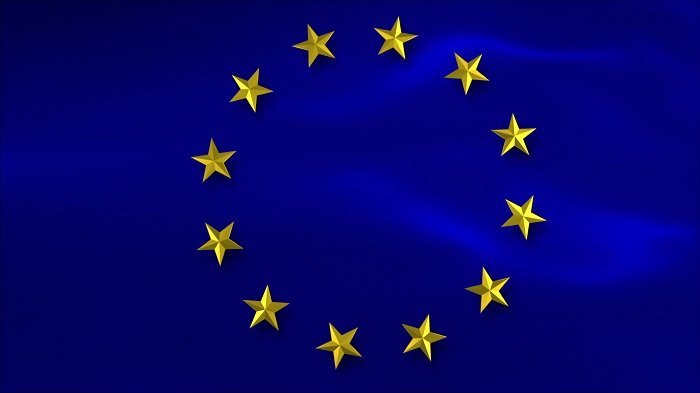The European Union or you can say the EU is an economic and political union of 27 members of states mainly all countries are located in Europe. All member countries have a combined of 4,233,255.3 km and approximately 447 million of the total population and contribute 5.8% of the world population. All country follows an internal single market law through a standardized under European Union Law. The European Union member countries are agreed to act as one EU member countries ensure the free movement of goods, people, and services within the internal market, making legislation in justice and home affairs and retain common policies on trade, fisheries, agriculture, and regional development.
The EU was established in 1999 but come into power in 2002, initially only 19 member countries join this Union and they were using the euro currency. The original member of the European Union also called European Communities were the inner six France, Italy, Belgium, The Netherlands, Luxembourg, and West Germany. The EU had generated a nominal GDP of around 20 trillion US dollars, Contributing approximately 25% of global nominal GDP. The EU also awarded the Nobel Peace Prize by the Common Foreign and Security Policy.

The living standard of all European Union countries is very high and all EU countries have a very high Human Development Index according to the United Nations Development Programme, (UNDP) in 2012. Due to EU global influence, The European Union has been known as an emerging superpower. So let’s see how democratic elections conducted in the European Union.
What Europe People’s think about the European Union
Being a citizen of the EU means that many aspects of our lives are regulated by a weird entity. It seems like a huge officialism is making decisions over our heads. Many European Citizen thinks that their vote in the EU elections doesn’t count and that the European Union is not democratic. How democratic is that the EU really and does your vote actually achieve anything? In democratic states, public policies have supported the desire of the people.
But the people are not a coherent thing. Countless different groups are battling for influence and power to set up laws and rules that benefit them. In a working democracy, there are checks and balances that are supposed to create a neutral environment, where these fights can be fought. Term limits stop factions from dominating too much. But all of this ends at our borders. International politics are not democratic but anarchic.
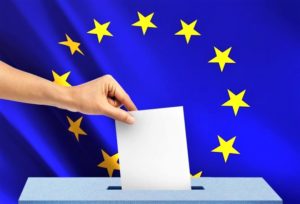
No central authority is powerful enough to make sure fairness or enforce laws therefore the only law is the tyranny of the strongest and anarchy. So for the majority of human history, powerful countries took what they wanted from others either by extortion or by violence. After World War II, the United Nations was founded to overcome this anarchy by establishing rules on how countries should behave. But since the United Nations has indeed no power and its members often have opposing interests it’s usually politely ignored.
The EU is a build that tries to have rules and laws for its member nations that are literally enforceable because the European Court of Justice is able to make a binding verdict. Originally the EU was founded to make sure peace between European nations and prosperity for the continent but it is also an effort to gain international power for its members. It’s like a “superstate”, and it is striving to be democratic and legitimized by all of its citizens. To do that it has to resolve the problem of various actors wanting various things. Only that its members are countries with very different priorities.
How Does the EU Democratic Election work
Since the EU is ridiculously complex and politicians are even worse than scientists at naming things we’ll simplify massively and omit tons of details. If you would like to make a democratic union of independent nations you’ve two options: One is: let everybody vote for national politicians, who then make decisions for the union together. Or two is: let every citizen vote directly for an independent institution that is able to make binding decisions.
Both approaches have up and drawbacks and therefore the European Union ended up with a mixture of both of them. Forward to the European Court of Justice, there are four main organizations that we’ll talk about today: The European Council, which is formed from the heads of state or states of the member countries. The Council of the European Union, with ministers from the member countries. The third one is that the European Commission, which is that the de facto government of the EU, having one commissioner for every member state. And lastly the European Parliament.

The Parliament is that the only a part of the EU that’s directly elected, by you, dear citizen, within the European Elections. In principle, all of those institutions of the EU originate from your direct or indirect vote be it at the national or EU level. But some do more than others. For example, you vote for your national representative and so contribute to forming a national government whose head of state features a seat in the European Council.
These leaders choose the President of the EU Commission and its companion Commissioners who eventually are confirmed by the EU Parliament. So this is a sort of indirect democracy. You didn’t vote for the Commission but you voted for the people who nominative them and for those who confirmed and police them. So in effect 2.5 of the 4 main European Union institutions depend upon the member state governments. But since you, as a citizen can only directly voted for the European Parliament.
How Powerful your vote in the Democratic Election of The European Union?
The European Parliament started out with very little impact but has become more and more powerful over the past 20 years. Today it has to approve the new laws, which may be binding for the member countries. It also votes on how the European Union budget is spent and, most importantly, on international pacts. All of this makes the Parliament very powerful and thus your vote very influential, even on a world level.
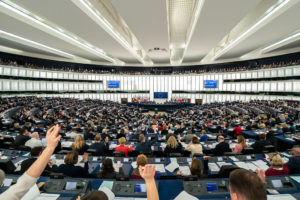
Compared to national Parliaments one significant power is still missing though. The EU–Parliament officially can’t propose new laws on its own which is often the core of the argument that the EU is not democratic enough and that the European Parliament should be given more impact. Right now the member states’ governments graceful much control the European Union. Giving the Parliament more power would make the EU an entire more democratic but it might also take power from member states. It is not clear which approach is better. Ultimately it is for the member’s states and us as citizens to decide how the Union should develop.
what is the conclusion
As a whole, the EU isn’t as democratic as most of its member states. But it is democratic. If you do not just like the decisions they create, regarding copyright, for instance, you’ll search what your representatives voted for, and vote them out. The struggle to form it more democratic is closely tied to who holds power over what. The EU keeps changing. You, dear citizen, aren’t only voting on the present politics but also on what the system will appear as if within the future.
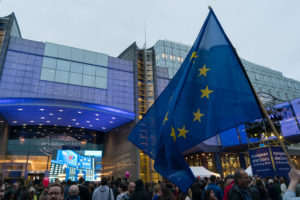
There are many parties and politicians that vowed to form the EU Parliament and so your vote, stronger. Many others want to keep it as it is or even diminish it. It is for you to decide what you think is better for the future of the Union. Currently, it is equally important for the EU whom you vote for at home. Because these are the people who have the most impact in the European Union, right now.
European Union Member Countries
The European Union has initially six founding countries France, Belgium, Italy, West Germany, Luxembourg, and The Netherlands, but now currently it has 27 member countries they all come together to the founding treaties.
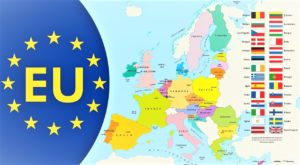
| Member Countries |
Capital |
Accession |
Population |
Area |
Member of The European Parliament |
| Austria |
Vienna |
1 January 1995 |
8,858,775 |
83,855 km² (32,377 sq mi) |
19 |
| Bulgaria |
Sofia |
1 January 2007 |
7,000,039 |
110,994 km² (42,855 sq mi) |
17 |
| Belgium |
Brussels |
Founder |
11,467,923 |
30,528 km² (11,787 sq mi) |
21 |
| Czech Republic |
Prague |
1 May 2004 |
10,649,800 |
78,866 km² (30,450 sq mi) |
21 |
| Croatia |
Zagreb |
1 July 2013 |
4,076,246 |
56,594 km² (21,851 sq mi) |
12 |
| Cyprus |
Nicosia |
1 May 2004 |
875,898 |
9,251 km² (3,572 sq mi) |
6 |
| Denmark |
Copenhagen |
1 January 1973 |
5,806,081 |
43,075 km² (16,631 sq mi) |
14 |
| Estonia |
Tallinn |
1 May 2004 |
1,324,820 |
45,227 km² (17,462 sq mi) |
7 |
| France |
Paris |
Founder |
67,028,048 |
640,679 km² (247,368 sq mi) |
79 |
| Finland |
Helsinki |
1 January 1995 |
5,517,919 |
338,424 km² (130,666 sq mi) |
14 |
| Germany |
Berlin |
Founder |
83,019,214 |
357,021 km² (137,847 sq mi) |
96 |
| Greece |
Athens |
1 January 1981 |
10,722,287 |
131,990 km² (50,960 sq mi) |
21 |
| Hungary |
Budapest |
1 May 2004 |
9,797,561 |
93,030 km² (35,920 sq mi) |
21 |
| Italy |
Rome |
Founder |
60,359,546 |
301,338 km² (116,347 sq mi) |
76 |
| Ireland |
Dublin |
1 January 1973 |
4,904,226 |
70,273 km² (27,133 sq mi) |
13 |
| Lithuania |
Vilnius |
1 May 2004 |
2,794,184 |
65,200 km² (25,200 sq mi) |
11 |
| Latvia |
Riga |
1 May 2004 |
1,919,968 |
64,589 km² (24,938 sq mi) |
8 |
| Luxembourg |
Luxembourg City |
Founder |
613,894 |
2,586 km² (998 sq mi) |
6 |
| Malta |
Valletta |
1 May 2004 |
493,559 |
316 km² (122 sq mi) |
6 |
| Netherlands |
Amsterdam |
Founder |
17,282,163 |
41,543 km² (16,040 sq mi) |
29 |
| Poland |
Warsaw |
1 May 2004 |
37,972,812 |
312,685 km² (120,728 sq mi) |
52 |
| Portugal |
Lisbon |
1 January 1986 |
10,276,617 |
92,390 km² (35,670 sq mi) |
21 |
| Romania |
Bucharest |
1 January 2007 |
19,401,658 |
238,391 km² (92,043 sq mi) |
33 |
| Spain |
Madrid |
1 January 1986 |
46,934,632 |
504,030 km² (194,610 sq mi) |
59 |
| Slovakia |
Bratislava |
1 May 2004 |
5,450,421 |
20,273 km² (7,827 sq mi) |
14 |
| Slovenia |
Ljubljana |
1 May 2004 |
2,080,908 |
504,030 km² (194,610 sq mi) |
8 |
| Sweden |
Stockholm |
1 January 1995 |
10,230,185 |
449,964 km² (173,732 sq mi) |
21 |
A total of 27 members of the state represent 705 ministers in the European parliament.



